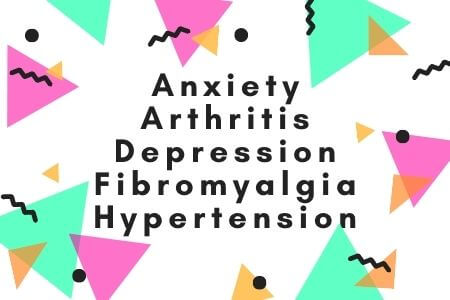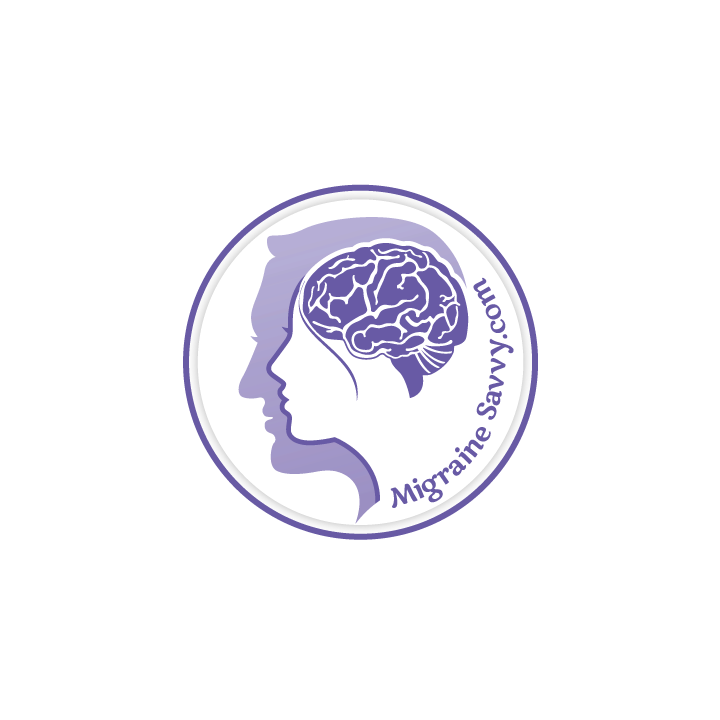- Home
- Associated Conditions
- Migraines and Celiac Disease
COMPLETE MAGNESIUM SUPPORT
My Top Choice - Magnesium Breakthrough - The ONLY supplement with all 7 essential magnesium types in one formula. Most only have 1-2 types, leaving you deficient.
Migraines and Celiac Disease
I recently read a study about migraines and Celiac disease. Their finding was that migraine headaches are more common in people with Celiac disease. I started to wonder if there was some link between migraineurs having Celiac disease first.
My #1 Choice in Magnesium Supplements
You know, what came first, the chicken or the egg?
The study concluded that there was no benefit to removing gluten from your diet when it comes to migraines. [1]
So what’s that mean then?
Should we be on a gluten-free diet or not?
It seems not, if you choose to believe this one study alone. But most nutritionist's that I have seen seem to know some secret research supporting the theory that gluten is bad for migraine sufferers. My doctor said to me only yesterday “gluten is nasty stuff!”
I removed gluten from my diet many years ago, and although it has had no impact on the severity, frequency or duration of my migraines, I have increased energy and have been able to maintain a healthy weight for my age group. I have been told by many health professionals that gluten puts on weight.
I have since read that only one in three people with Celiac disease report to have migraines. [3]
So if you don't already know this - Gluten is in:

- all types of wheat (including farina, graham flour, semolina, and durum);
- Barley
- Rye
- Bulgar,
- Matzo meal
- Kamut
- Kasha
- Spelt and
- Triticale
Facts About Celiac Disease
Celiac Disease (also spelled Coeliac) is a digestive disorder that occurs when a person's immune system overreacts to protein gluten or other proteins containing gluten. It thinks it is a bacteria to be destroyed.
Gliadin, found in grains including wheat, rye, barley, and to some degree oats (this is being debated), can cause this over reaction.
It is my understanding that by eating food(s) that contain gluten the immune system's response damages the intestinal lining by making the tiny villi lie down causing an inability to absorb nutrients through the intestinal walls.
Hence, many people with Celiac Disease are skinny and under nourished. And probably cranky. Ok - I am speaking for myself again. Depression is also very common with both migraines and Celiac disease.
It is an inherited autoimmune disease. The body mistakenly identifies body cells as harmful invaders and attacks the intestinal cells.
Celiac disease is associated with other autoimmune disorders, such as: lupus erythematosus, type I diabetes, rheumatoid arthritis, thyroid disease, and microscopic colitis (a disorder that causes inflammation of the colon).
1 out 133 people in the US alone have been diagnosed with Celiac Disease.
It may be inherited from a family member – the statistics change to 1 out of 22 people having Celiac Disease in some cases.
It is most commonly diagnosed in infants ( 8 – 12 months old) and 30 to 40 year olds.
Currently there is no cure, however, symptoms will subside on a strict gluten free diet. It may take up to 6 weeks to notice improvement. In severe cases, like myself, it can take up to 2 years to heal the digestive tract.
Celiac Disease vs Gluten Intolerance

This is my understanding of the difference between to two.
With Celiac Disease, the gluten is mistaken for a harmful invader, like bacteria, consequently an attack is launched.
Your immune system cells flood to the stomach and intestine to destroy the gluten.
However, among your immune cells are auto antibodies that attack the lining of the intestine by mistake. This over reaction to the mistaken bacteria results in the intestinal lining being damaged. So your body is attacking your body.
Celiac Disease has been linked to an increased cancer risk, and gluten sensitivity has not. You can also have an allergy to wheat, which only involves wheat and not the other foods mentioned above.
They are both determined with a simple blood test initially. But with Gluten intolerance you do not have the antibodies that are attacking the intestines. This is what I have been diagnosed with, so I am just what is called intolerant and not Celiac, thankfully.
So the symptoms I experience are: extreme stomach and gas pain, constipation or diarrhea, bad moods, more headaches, and I can be stuck in bed for weeks. Oh - undernourished and skinny. That's all! I say that lightly, but it has been pretty intense actually if I eat the wrong thing by accident.
Migraines and Celiac Disease
Many studies indicate that there is a link between migraines and Celiac disease. However, I believe the jury is still out on just how strong this link is and whether we need to adhere to a strict gluten free diet or not in order to eliminate migraines.
I do think if Celiac disease causes problematic digestion and other complications like nutritional deficiencies, it makes sense that migraines are one of the more common symptoms. Most importantly, if this poor digestion is left untreated, one can loose a lot of weight, including lean muscle weight and it can become fatal.
If you are getting regular migraine headaches and lacking in energy, it might be worth a blood test to rule out Celiac disease, wheat allergy or gluten intolerance.
"Give it a go" as they say here in Australia. If it reduces your migraines, it's worth it.
Treatment and Prevention
There is no cure for Celiac disease, but the condition can be managed with some simple diet changes over to a gluten free diet. I noticed a huge difference in my first month. I was able to get out of bed for the first time in years. HUGE!
In some cases it can take some months for the intestine to fully recover. It has been noted that it may take 2 - 3 years in severe cases (elderly people). Finding a local nutritionist to help might be a good idea too. If you keep a migraine diary, you can track if this avoidance makes a difference.
Sticking to a gluten free diet is your best treatment and prevention. Along with those things mentioned above – stay away from any cereals, crackers, pasta, cookies, cakes, pies, gravy mixes, and many sauces unless they are properly labelled “Gluten Free”.
Read migraines and gluten for avoiding gluten and finding safe foods to eat. If you have migraines and Celiac disease I'd love to hear from you. Let me know if I missed something important here.
WANT MORE TIPS? Subscribe to my newsletter and follow along on Facebook and Pinterest for all of the latest updates.
ASSOCIATED CONDITIONS Related Articles
How to be more MIGRAINE SAVVY right now...
Migraines and Celiac Disease References:
1. Celiac.com (2013) link - http://www.celiac.com/articles/23236/1/Higher-Rates-of-Migraine-Headaches-in-People-With-Celiac-Disease-and-Inflammatory-Bowel-Disease/Page1.html Study by: Dimitrova, A. K., Ungaro, R. C., Lebwohl, B., Lewis, S. K., Tennyson, C. A., Green, M. W., Babyatsky, M. W. and Green, P. H. (2013), Prevalence of Migraine in Patients With Celiac Disease and Inflammatory Bowel Disease. Headache: The Journal of Head and Face Pain, 53: 344–355. doi: 10.1111/j.1526-4610.2012.02260.x. Available [Online] at: https://onlinelibrary.wiley.com/doi/10.1111/j.1526-4610.2012.02260.x/abstract
2. Bioconcepts (2012) Migraines and Celiac Disease. Available [Online] at: http://bio.health.naturalstandard.com/index-abstract.asp?create-abstract=condition-celiac.asp&title=Celiac%20disease This information has been edited and peer-reviewed by contributors to the NSRC at (www.naturalstandard.com). Accessed July 11, 2013.
3. Marcus, D. MD (2012) Gluten and Migraine: is there a link? Available [Online] at: http://migraine.com/blog/gluten-and-migraine-is-there-a-link Accessed July 25,2013.
















